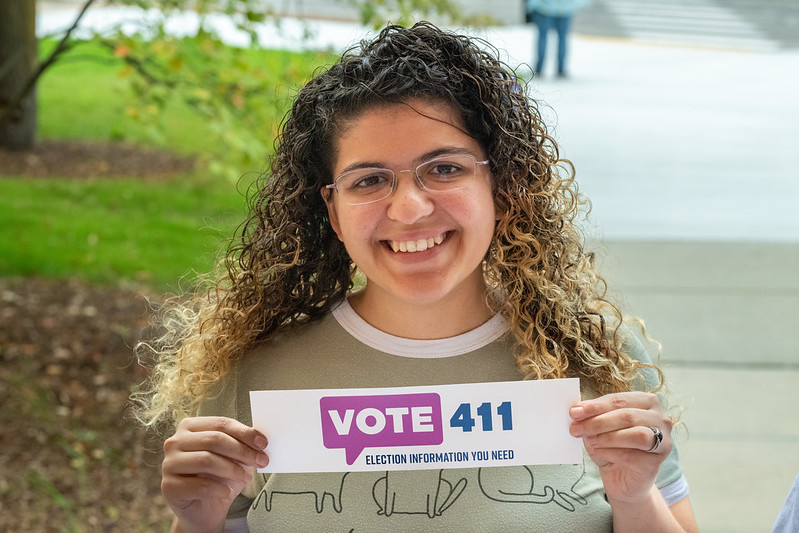Imagine it’s primary season in your home state. You walk to your local library on Election Day, ready to cast a ballot in your chosen party’s primary. You’ve printed a blue ballot or a red ballot from your party’s website, you’ve checked off the candidates you’re voting for, and you line up to drop off your ballot. Then you go home and find a threatening note on your door because of the blue or red ballot you cast. Suddenly, you think twice about whether you’ll even participate in the next election.
The History of the Secret Ballot
It seems like an unlikely scenario, but less than 150 years ago, American elections and primaries functioned this way: parties printed ballots, distributed them to members, and anyone—friends, family, neighbors—could see which party and whom you voted for. Before that, political parties would hold raucous rallies and compete to recruit voters for their respective candidates. In some cases, candidates and their supporters would take notes and collect records of who voted against their party or candidate, then proceed to bribe, blackmail, and scare voters ahead of upcoming elections. Voters were often harassed, attacked, and threatened with violence based on who they voted for because ballots were public and their contents easily identifiable.
In some states, an oral ballot was in place, meaning people publicly called out whom they wanted to vote for. In short, there was no secret ballot, and the lack of privacy limited democratic participation and even made it dangerous. Then, in the late 19th century, state governments began adopting the Australian secret ballot system. Voters could fill out plain government-printed ballots and drop them into a box at the voting polls secretly. As a result, citizens participated more confidently in elections without worrying or fearing harassment. The secret ballot has been a norm in American elections since, and a 2016 study found that 44 states have some constitutional protection of secrecy in voting. Secret ballots are critical to democratic participation because they ensure people’s safety and privacy in voting. As a result, elections can reflect the true will of the people.
,

,
Current Threats to the Secret Ballot
While many bills have been introduced that threaten voter access and participation following the 2020 election and the proliferation of election denialism, threats to the secret ballot have largely flown under the radar. In 2021, 29 states introduced post-election audit bills.
One example is a set of bills introduced in Arizona’s 2023 legislative session. The bills, SB 1324 and its eventual replacement, HB 2560, would have required the creation of online public ballot imaging portals, which would include images of voter’s ballots and require the online publication of a list of all individuals who voted in an election, along with their names, years of birth, and street addresses. Both bills passed the legislature but were ultimately vetoed by the governor at the urging of voting rights organizations, including LWV of Arizona, who raised concerns about voter privacy.
A similar bill was introduced in the New York State Senate (S.2333), which would make the ballot images available upon request. Proponents of these policies argue that they will protect poll workers and increase public confidence in elections while also assuaging election deniers by making images of “verifiable” ballots available online. In reality, these bills threaten voter privacy, safety, and security and could harm voter turnout in the long term.
,
Promote secure and accessible elections in your community by joining your local League!
,
It is unlikely that our elections will return to what they were over 150 years ago: public spectacles with party-printed ballots or verbal votes. Nevertheless, we must not take the secret ballot and our privacy as voters for granted, especially when so many threats already exist to voter access and participation. Ballot imaging policies have only popped up in a few states nationwide, but they are worth paying attention to, especially as election denialism remains a threat.
The US adopted secret ballots so that people would feel safe expressing their true choices in elections without fear of retaliation or harassment. As defenders of democracy, we must oppose policies limiting voter participation and access. Join your local League and champion bills that defend democracy in your community.